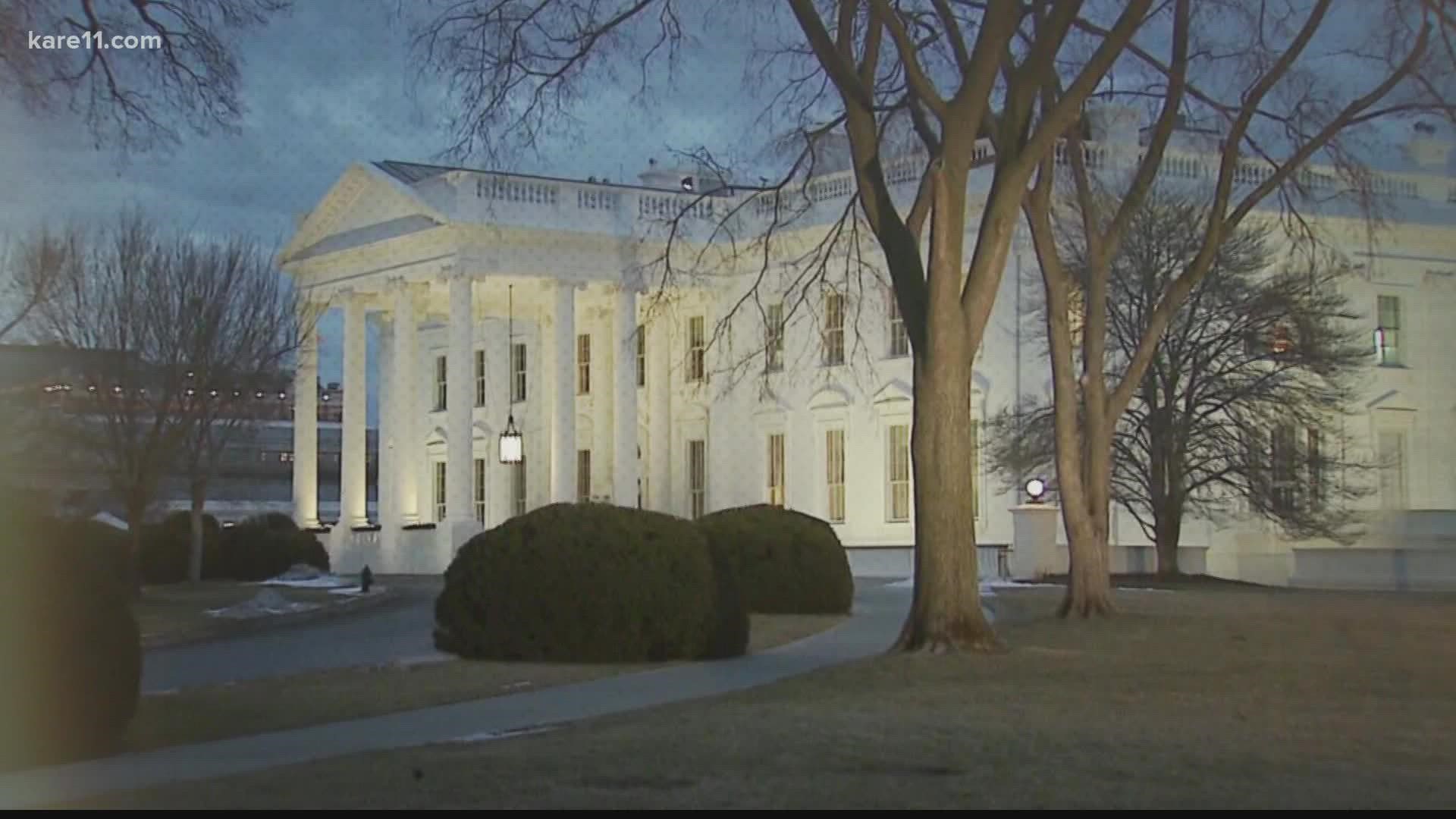MINNEAPOLIS — The U.S. Supreme Court is now set to settle a months-long legal battle over President Joe Biden's federal COVID-19 vaccine mandates.
The high court will hear arguments for two cases on Jan. 7, 2022: The administration's vaccine-or-test mandate for large private companies, and on the vaccine mandate for health care workers at facilities which receive federal funding.
University of Minnesota law professor and Supreme Court expert, Tim Johnson, says the expedited hearing is a rare step, but will help add clarity for more than 80 million Americans who work for large companies
"This only happens when it's an issue of utmost importance for the entire country," Johnson said. "Of course the vaccination mandate, along with what is happening with COVID-19 and the omicron variant, specifically, is very important for the United States."
Johnson says companies with 100 or more employees and employers who receive federal Medicare/Medicaid funding, have watched President Biden's on-again, off-again vaccine mandates ping pong around the lower courts for months, but the high court is now set to issue a final determination before it goes into effect.
Still, Johnson says the SCOTUS decisions on the mandates likely won't come down to the justices' views on the vaccines themselves.
"The court, including several members of the six-person conservative majority, have been willing to uphold state vaccine mandates because that is sort of ground in more than 100-year-old precedence that the court decided in the early 20th century," Johnson said. "But the six justices who are on the right hand side of the court are quite skeptical of massive increases in executive power."
For a preview of what may be to come, Johnson points to the SCOTUS decision to block President Biden's executive order extending the national eviction moratorium in August.
Kent Erdahl: "Do you think both of these could end up being struck down?"
Johnson: "I think that's absolutely right. I think that it is quite possible that the court says that this is too much of a reach of executive power and if President Biden wants both the OSHA regulations, as well as the policy for all hospitals, they've got to be laws passed by Congress, and only then signed by the President of the United States."
Even if the federal mandates are overturned, the Supreme Court has been clear that employers still have the right to keep their own vaccine mandates in place, and so do individual states.

